I have a confession to make. Now that I am a “semi-retired” man of leisure, I spend many of my afternoons and some of my evenings time-traveling — transported back to the ’50s, ’60s, ’70s, and ’80s by means of nostalgia television networks like BUZZR, MeTV, Decades, Cozi TV, Antenna TV, and others. While my woke friends binge on the latest edgy, must-see offerings from Netflix, Hulu, Amazon, Acorn, and the rest of the streaming services, I settle back to enjoy classic game shows like To Tell the Truth, What’s My Line, Password, Super Password, Card Sharks, and Match Game. I also immerse myself in such vintage TV fare as M*A*S*H, Mary Tyler Moore, Bob Newhart, Bewitched, Columbo, Gomer Pyle, The Munsters, and The Love Boat.
It’s like stepping through a wormhole and into a comforting, less confusing time. It’s not just reruns; it’s a parallel television dimension.
Welcome to the retro dimension.
“It’s a refuge from the dark aspects of our world today. People come to us because we’re family-friendly, safe, an environment that you can be nostalgic about and be entertained by. … It’s comfort TV.”
More precisely, it’s digital multicasting, and it’s relatively new. Starting in 2009, broadcasters switched from analog to digital technology, which enabled them to run more than one signal from their transmitters. Local stations could now broadcast as many as six different channels, making money from each of them. This created a need for 24-hours-a-day content, which enterprising media companies stepped in to produce and distribute. Today, there are more than 30 English-language multicast networks (or diginets) available, depending on where you live.
Luckily for me, our cable provider here in suburban Philadelphia includes BUZZR in its lineup. (Look for it in yours.) Launched four years ago by global entertainment giant Fremantle (which also produces, among other things, American Idol, Britain’s Got Talent, the current versions of The Price is Right and Match Game, and prestige dramas like My Brilliant Friend), BUZZR describes itself as “a pop culture time capsule” on its website. With owner Fremantle’s vast portfolio of 40,000 iconic game show episodes at its disposal (including the landmark Goodson-Todman catalogue), BUZZR programs four decades worth of hosts and challenges — from Beat the Clock with Bud Collyer to Classic Concentration with Alex Trebek — that, in my humble opinion, still entertain today. (Some better than others, but that’s a quibble.)
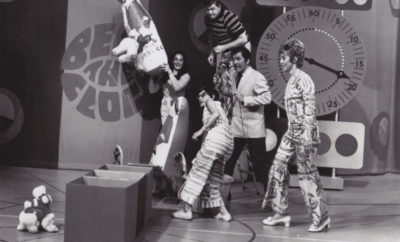
Mark Deetjen, senior vice president of programming and operations for BUZZR, is an evangelist for optimism: “We live in a world of the 24-hour news cycle, a world of bad news,” he says. “I can focus on content that I feel is uplifting … happy, positive, family-friendly, and engaging in a way that you’re rooting for somebody to win, imagining yourself as a winner as well.”
BUZZR currently airs 18 different titles a week. That may not seem like so many at first, but as Deetjen explains, “Among these titles, we run different years with different hosts. For example, the Card Sharks of the ’70s with Jim Perry, then the ’80s with Bob Eubanks; the Family Feud of the ’80s with Richard Dawson, then the ’90s with Ray Combs.” You can be a fan of one version and not the other, but they’re both on BUZZR.
Perhaps due to the Fremantle connection, BUZZR has impressive distribution. The numbers according to Deetjen: “We are available in about 88 million homes; in 18 of the top 20 markets and 70 individual markets; also, nationally on Dish.” Its core audience is 35 to 64 years old and 58 percent female, which “lines up well” with Fremantle’s current active roster of game shows like Family Feud and To Tell the Truth. But, Deetjen says, things are changing, albeit slowly. “We’ve been pleasantly surprised that there is a small but growing audience of 18- to 35-year-old men watching our channel.” One possible explanation for this is “a move away from shows from the ’50s and ’60s and more into the ’80s and ’90s — for example, Sale of the Century and Supermarket Sweep — which made us a little bit more appealing to a younger audience.”
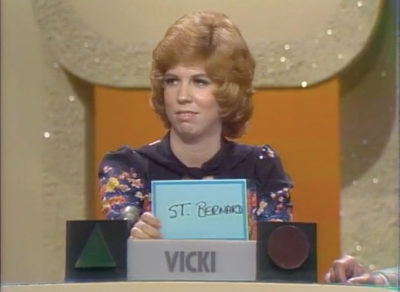
They’re also building BUZZR’s social media presence on Facebook, Twitter, and Instagram. “We have 170,000 followers on Facebook,” Deetjen reports, “and across the platforms, we reach over 200,000 people.” Plus, there’s a pretty cool live streaming app with clips and quizzes and other fun stuff to entertain old and young game show fans alike.
When asked what makes a game show classic, Deetjen explains, “The black-and-white shows from the late ’50s and ’60s, like Beat the Clock and I’ve Got a Secret, we recognize as classics by keeping the original commercials in them — for example, Sylvania TVs and flash bulbs, Remington razors, Adorn hair spray.” Like television time capsules, they provide a glimpse into what people were using and buying back then.
As for what defines vintage, he suggests, “Something that stirs nostalgia. People want to re-experience the feeling of an era, whether they lived in it or not” — the eras in question being the ’70s and ’80s. Vintage shows are “edgier, cooler” than their precursors. “Look at the questions on Match Game and Card Sharks,” he says. “They’re a little more salacious, lots of double entendres.”
Indeed. That’s one reason I’ve become a huge fan of Match Game 73-79. It’s unabashedly and hilariously un-PC, bringing back a less censorious era. I had no idea it had been nominated six times for various Daytime Emmy Awards, including Gene Rayburn three times for Outstanding Game Show Host. Or that it had been named No. 4 of the 60 Greatest Game Shows of All Time by TV Guide in 2013 (Jeopardy was No. 1).
Now, for two hours most every weekday afternoon, you’ll find me playing along with the two contestants, trying to match the fill-in-the-blank answers of six celebrity panelists that host Rayburn calls his “ding-a-lings.” (More about the celebrities in a moment.)
Admittedly, the humor can get a bit puerile. And Rayburn’s habit of ogling the women panelists and contestants alike and making brazenly suggestive comments can get icky. That notwithstanding, he’s the consummate game show host: friendly, quick-witted, and surprisingly articulate, tossing off words like colloquy while yukking it up with the assembled celebrities, who snipe at one another as the studio audience boos and cheers their answers.
Match Game is unabashedly and hilariously un-PC, bringing back a less censorious era “where they equally offended everybody.”
You have regulars Charles Nelson Reilly, Richard Dawson, Brett Somers; about a dozen semi-regulars, including Nipsey Russell, Fannie Flagg, and Betty White; plus a revolving door of big- and little-name talent who all seem to be on hand to have a good time.
My favorite celebs? It’s a toss-up between puckish Charles Nelson Reilly (who you’d want to have at your cocktail party) and sweetly bawdy Betty White (who might discreetly drop an F-bomb at said gathering).
The aforementioned bickering and insults are for laughs (I suspect that the celebs sometimes crossed the street together for a friendly nip or two between episodes), and in defiance of the Surgeon General’s warning, cigarettes and at least one pipe are being smoked right there on the set.
That’s retro.
“Everyone’s having so much fun that people love it,” says Deetjen. “It really has to do with the spirit of the show. It doesn’t get old.”
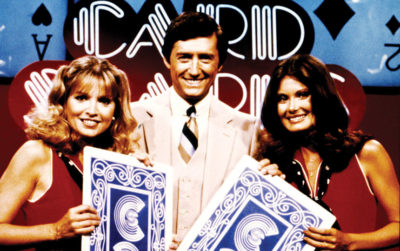
It also has to do with the attitude, says Jim McKairnes, a former executive vice president of development and planning at CBS, and author of All in the Decade: 70 Things About 70s TV That Turned Ten Years into a Revolution. “Today we call it snark,” he says. “There’s just great snark in it that makes it trendy today.”
There’s also plenty of innuendo. “You have Charles Nelson Reilly making not-so-veiled allusions to his being gay at a time when being gay was not readily acceptable,” McKairnes says. “Look at the progress made on that game,” says Deetjen, recalling a Nipsey Russell moment. “The question was: ‘Disney added an eighth dwarf to Snow White. His name is [blank].’ Nipsey’s answer was ‘Whitey.’”
All of which is well and good, but I think Deetjen best explains Match Game’s appeal today: “In an era where people take offense at everything, here’s a show where they equally offended everybody.”
In other words, it’s my kind of show. As is another one of my favorites, The Love Boat.
Admittedly, it’s pretty silly. Flimsy plots featuring a flotilla of random B-listers and once-weres who must have needed to pay the mortgage that week. It is a hoot, though, to see who hauls their luggage down the arrival ramp of the Pacific Princess. Milton Berle, Charo, Donny Most, the Village People? (Wikipedia has a complete list of celebrity appearances.) And I do wish that I’d had a chance to go onshore with perky cruise director Julie McCoy back in the day.
In fact, I have to make a rather embarrassing confession.
Every Sunday afternoon as the opening credits roll, I belt out the theme song at high volume — “Love, exciting and new. Come aboard, we’re expecting you …” — and make a spectacle of myself (or would do if anyone was around).
Until recently, I had no idea that I was singing along to the No. 1 rated and distributed multicast network, namely, MeTV (“Memorable Entertainment”), which is owned and produced by Chicago-based Weigel Broadcasting, a multiplatform media company that produces five retronets in all, including Movies!, H&I (Heroes and Icons), Start TV, and another favorite of mine, Decades (where I get my Bob Newhart fix).
Marketed as “The Definitive Destination for Classic TV,” MeTV airs a variety of programs from the 1950s through the early 1990s. It’s a mixed bag of shows — The Love Boat, M*A*S*H, The Andy Griffith Show, Gilligan’s Island, Charlie’s Angels, Gunsmoke, WKRP in Cincinnati, The Brady Bunch. Fifty-four in all at current count.
And it’s huge.
“We have 27 million different people watching MeTV every week; our average quarter hour is about a half a million,” says Weigel Vice Chairman Neal Sabin, who conceived the formats at Weigel and is considered a visionary in the digital multicasting industry. (While the audience pales compared to Netflix’s 130 million paid subscribers, it’s impressive proof of the power of nostalgia.)
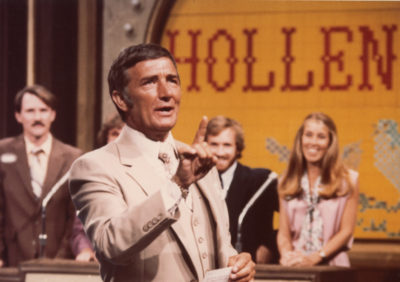
“In daytime, MeTV is a top 10 network compared to all cable networks,” says Sabin. “If you remove the news networks, the sports networks, and the kids networks, MeTV is in the top five and sometimes higher.”
Sabin credits this strong showing to “the power of all the brand names we have, like Andy Griffith, M*A*S*H, Perry Mason, Carol Burnett. That’s by design.”
But what about the competition? My own daily spins through the retro dimension often include stops at diginets Cozi TV and Antenna TV. Like MeTV, they traffic in small-screen nostalgia.
Briefly: Cozi TV is an NBC Universal Media project that specializes in sitcoms and dramas, mostly later series like Murder, She Wrote; Frasier; The Nanny; Will and Grace; and Magnum, P.I., but also ’60s stalwarts like The Dick Van Dyke Show and The Munsters. Antenna TV, which is owned by Tribune Broadcasting, serves up classic television series from the 1950s to the 1990s. There you’ll find Father Knows Best; I Dream of Jeannie; Bewitched; Welcome Back, Kotter; Three’s Company; Wings; Johnny Carson; and more.
Like Deetjen at BUZZR, Sabin positions MeTV as wholesome escapism. “It’s a refuge from the dark aspects of our world today,” he says. “People come to us because we’re family-friendly, safe, an environment that you can be nostalgic about and be entertained by and not have to worry like you do when you turn on the news and some of the streaming shows. It’s comfort TV.”
This resonates with former network exec and author McKairnes: “It takes me away from the world of politics and darkness. I look at these retronets as a refuge from confusion, even from network television, which has become very confusing.”
Maybe I’m doing more than just enjoying myself watching classic game shows. Could it be that I’m actually exercising my brain as I play along?
Who are his fellow refugees? According to MeTV’s latest ratings (September 2018), viewers aged 25 to 54 make up the largest segment, split 50-50 between the genders, with the next largest being those aged 35-64.
As it happens, the diginet has seen “pretty substantial growth” in the 18-25 demographic in the last year, Sabin reports. “Younger viewers are discovering these shows through social media, through their parents. It amazes us how many young people love Hogan’s Heroes.”
For Sabin and Weigel, keeping up with shifting demographics means tweaking the rotation. “We always try to have more than 50 shows going. It’s our secret sauce: having a wide variety of shows that appeal to various groups. We have 200 series in our library to service our five networks.”
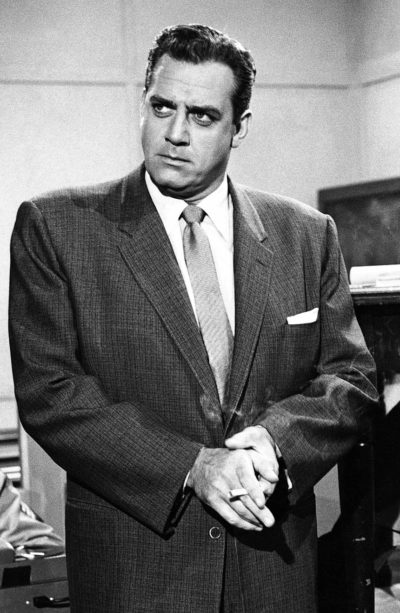
What’s most popular on MeTV depends on the audience and the time. There are the perennials like M*A*S*H, The Andy Griffith Show, and Perry Mason. “Westerns on the weekend are among the highest rated,” Sabin says. “Columbo on Sunday nights after football sometimes draws two-plus million.”
When asked what constitutes classic TV, Sabin is a bit vague but comes down on the side of what pulls the ratings. “Our core is the ’60s and ’70s and ’80s, but we touch on the ’90s a bit,” Sabin explains. “We get mail from die-hard fans who say we should only do shows from the ’60s and ’70s. We read them, but what we read that counts are the Nielsen ratings.”
For his part, media maven McKairnes believes what defines classic television are storytelling and characters, even in sitcoms. “Most of television these days, outside of streaming services and some premium channels, is ephemeral, like cotton candy,” he maintains. “Viewers are looking back to the past to find engaging storytelling and developed characters like you find in, say, Columbo and M*A*S*H. True, they can find storytelling and characters in, say, House of Cards or The Walking Dead, but something tells me that there’s something in the sitcoms of old, even Mama’s Family, that is more relatable or digestible.”
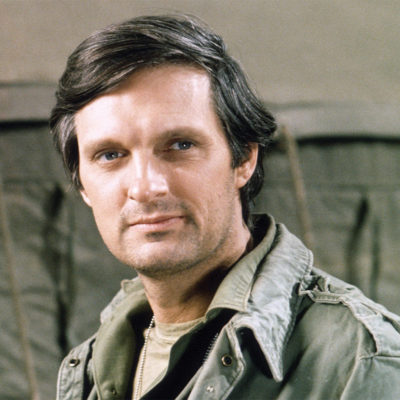
In any event, they don’t seem to be having a problem finding MeTV on social media. “We have three-quarters of a million Facebook followers,” says Sabin. “But we don’t push for likes so much because we can’t monetize them. Instead, we push traffic towards our website, where there are games, quizzes, videos, music, merchandise.” (Note: There’s also a MeTV app — with live streaming on the horizon.)
So, what does the future hold for MeTV and other retronets? There are only a finite number of previously seen shows that qualify as classics, and viewers may eventually tire of the same menu. Will MeTV need to go original?
Sabin doesn’t see a need for that, at least for now. “We may dabble in some original content, but we must be on the 20th run of Perry Mason and the 30th run of M*A*S*H, and the numbers are getting stronger, not weaker. It has to do with the timelessness of these old shows.” And, as McKairnes observes, “running reruns is relatively risk-free, whereas there’s a ton of original programming out there that isn’t making money.”
On the other hand, Sabin acknowledges that viewer habits are in transition, what with live-streaming apps and such. “The way people are going to watch television is going to change,” he says, “and we’re going to change along with it.” Still, the basics will abide. “There’s something to be said about coming home from work and all the stress of the day and having a ‘stream’ of curated classic shows waiting for you.”
Or as McKairnes puts it, “I like lying on the couch and watching MeTV. It’s a very comfortable relationship.”
The other afternoon, as I was watching Password (or maybe it was Super Password), I had a thought. Maybe I’m doing more than just enjoying myself watching classic game shows. Could it be that I’m actually exercising my brain and delaying possible dementia as I play along? After all, I’d once read that crossword puzzles are good for brain health. This is close to that, yes? I decided to ask an expert.
Gary Small, M.D., is the Parlow-Solomon professor on aging at the David Geffen School of Medicine at UCLA and director of the UCLA Longevity Center. He’s also the author of The Alzheimer’s Prevention Program: Keep Your Brain Healthy for the Rest of Your Life. If anyone would have an answer, it would be him.
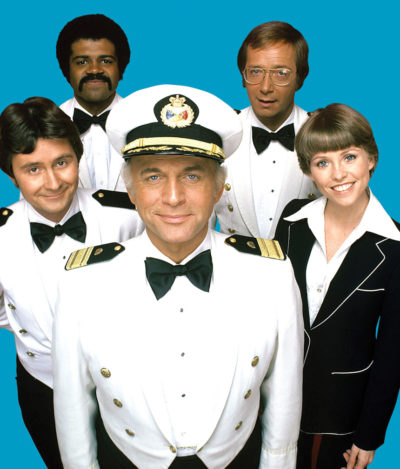
Turned out, I was breaking new ground.
“I’ve talked to so many journalists over the years,” Small says, “and I believe this is the first time someone has asked this question specifically.”
He explained that there aren’t any systematic studies on whether watching, say, Match Game or Password boosts anything, but there has been research looking at other forms of mental stimulation.
“A few years ago, we looked at what happens to the brain when people search online. People who had prior experience searching online showed tremendous neural activation. People who were doing it for the first time didn’t show that, but there was significant increase after they trained an hour every day. What that tells me is that any significant engagement online or a mentally challenging task can exercise your brain.”
Like playing along with Match Game or Card Sharks or Password?
“There also has been some significant research into what are called working memory games,” Small says. “Working memory is a form of short-term memory that we use to solve problems and think about stuff, holding information in your mind long enough that you can use it. These games do have an impact.”
Like Match Game and Card Sharks and Password? I asked hopefully.
“Possibly, when you engage in these games, you could be helping your brain or your cognitive acuity.”
Possibly. Okay, I’ll take that.
Then, perhaps concerned for my overall health, he added, “We have better studies on the benefits of physical exercise.”
Password and push-ups. Now that’s the ticket.
This article is featured in the March/April 2019 issue of The Saturday Evening Post. Subscribe to the magazine for more art, inspiring stories, fiction, humor, and features from our archives.
Featured image: (Courtesy MeTV/Shutterstock)
Become a Saturday Evening Post member and enjoy unlimited access. Subscribe now
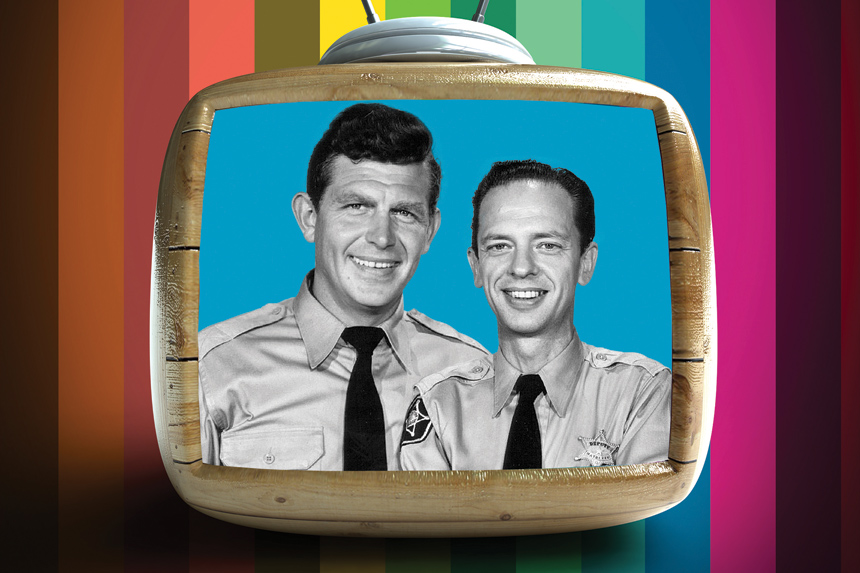
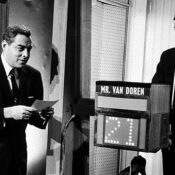

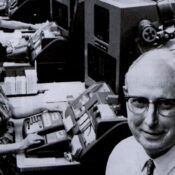
Comments
As one born in 1957, I like watching TV shows from the 1960’s/70’s but hate to see a 60 minute show from that era get about 10 to 12 minutes edited out in order to get today’s ad time shown. A 60 minute show in the 1960’s only had about 5/6 minutes worth of commercials; now there’s almost 20 minutes.
My family watched Alfred Hitchcock Presents, the Twilight Zone when I was a kid, & I find those episodes still entertaining. & Retro TV has come a long way since “Nick at Nite.”
I love the old game shows and sitcoms like Andy Griffith, Mary Tyler Moore, Hollywood Squares, and shows like Perry Mason and Lou Grant and Barney Miller that are entertaining without giving me nightmares. I also like seeing all the old TV stars and seeing some of the old commercials. I fear some of today’s programming gives the wrong people bad ideas. I don’t think showing people how to explicitly torture and murder are entertaining. Too much chaos and graphic violence. I see they are beginning to recreate some of the old game shows like Match Game and look how long Jeopardy has been on the air! I, too, think I learn things on some of the game shows and they are FUN! That’s entertainment!
Retro TV is also therapeutic TV when I have the time to watch. It reconnects the ’60s-’70s me to the ‘stranger in my own life’ feeling I frequently have in this unsettling, completely different time period.
I no more than got the March/April issue when all these warnings about this or that station going away by April 12th or so started coning on if you don’t do a completely scanning of all the stations. Fine. I’ve done that, several times not to take any chances, but no longer have ‘Decades-TV’, and haven’t since Labor Day weekend nearly 7 months ago.
I still wish Password was in production because I’d love to be a contestant. Always great at giving and receiving the clues with the home version, it would be a dream come true. Two of my favorite stars (Betty White and Elizabeth Montgomery) were real Password champs. To get to follow in their footsteps, even a little bit, I’d love. Until then, I get my fix of these great women on ‘The Mary Tyler Moore Show’ and ‘Bewitched’ of course.
I hope at some point more of these stations will re-discover ‘Barnaby Jones’, ‘The Fall Guy’ ‘T J Hooker’, ‘MacGyver’ and ‘Quantum Leap’. Great shows with equally great theme songs as well. We mustn’t forget that important fact. Before ANY of that though, I’d like to see the nonsense and threats of late stop with these stations. It’s another complication thorn in our sides none of us needs in this already NOT-much-to-be-happy-about era!
My husband and I enjoy the old TV shows on MeTV, Antenna and others. Whether comedies or westerns, mysteries, drama. Much better than the prime time shows or so called Reality shows ( what a farce)
The Oscars was a sham, our closest theater is 100 miles round trip. Haven’t seen a movie for many years, it was Grand Torino.
Our small town is trying to find someone to run a new theater here in a refurbished building. Hope soon
I enjoy reading the Saturday Evening Post very much. Thanks for a great magazine